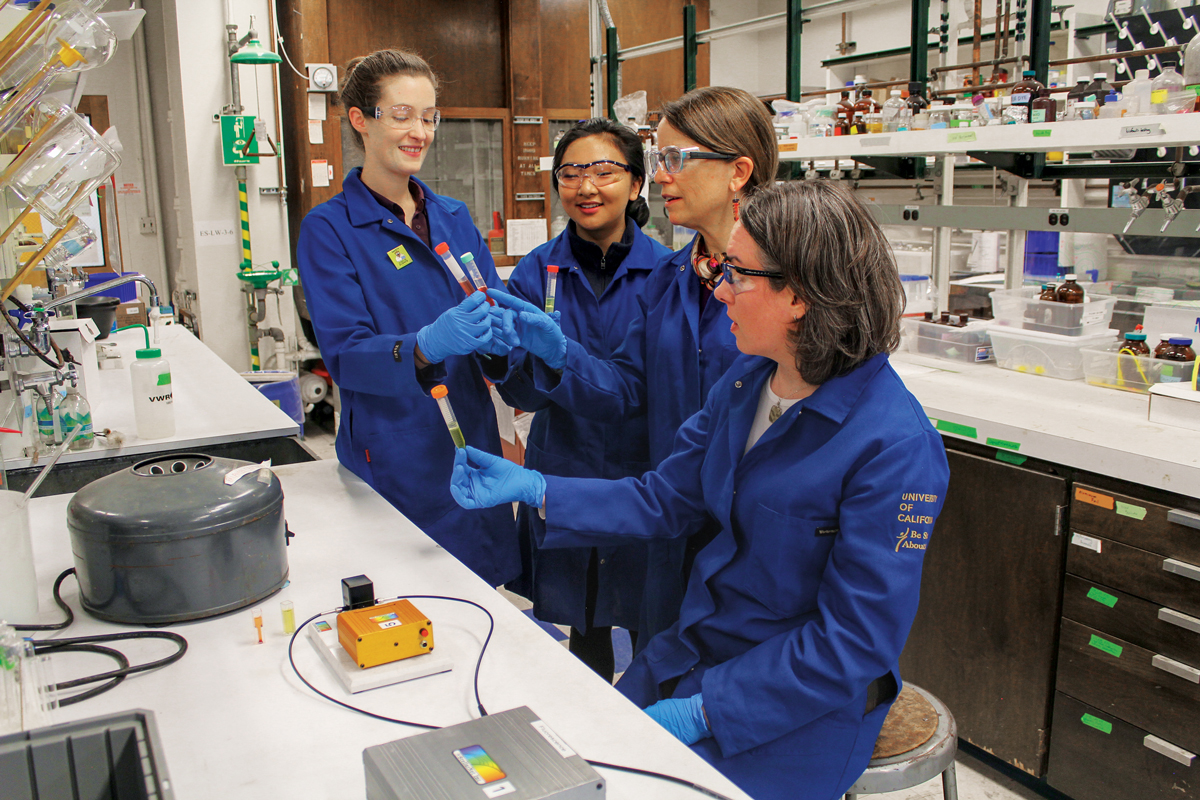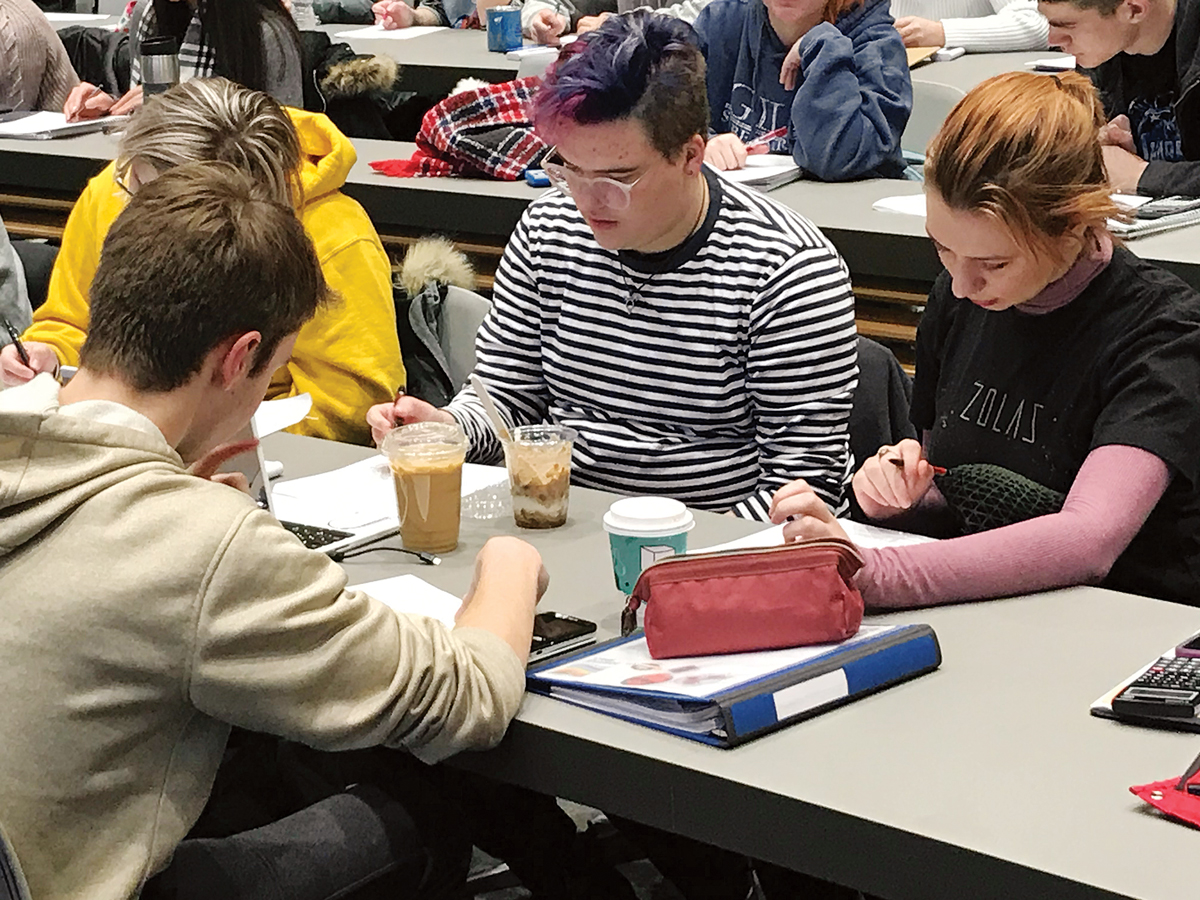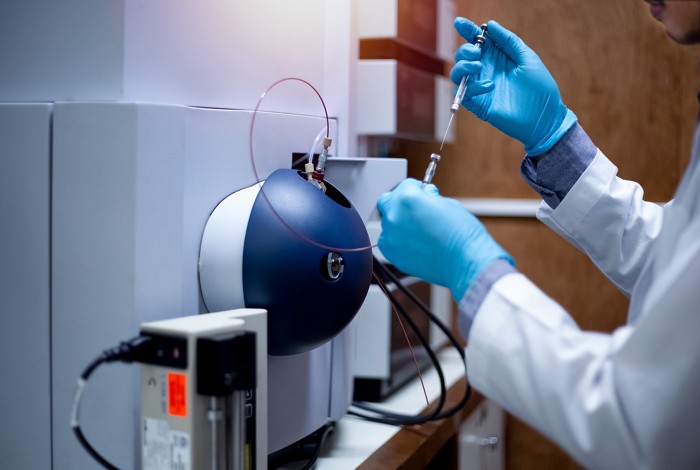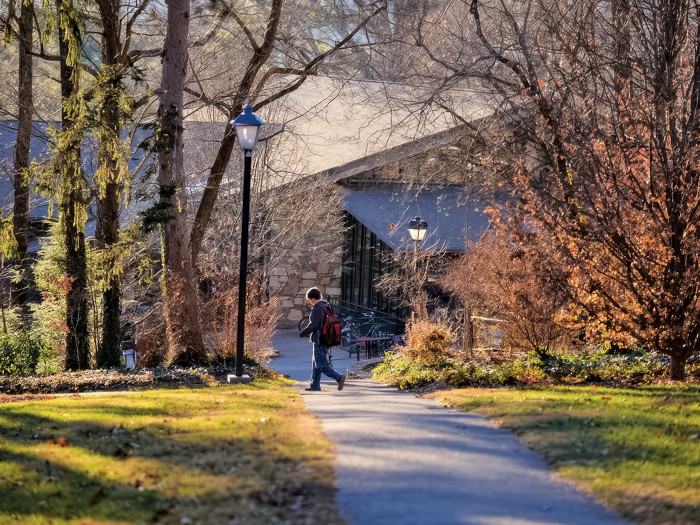Think locally
In Flint, systems thinking connects chemistry to the water crisis
Students are learning how chemistry fits into local issues
by Sam Lemonick

In April 2014, officials in Flint, Michigan, decided to start treating the city’s drinking water locally. But they failed to add corrosion inhibitors to the water sent through ancient pipes to homes and businesses, and Flint residents were exposed to dangerous levels of lead, as well as bacteria and other pollutants. Problems and aftereffects persist to this day.
Some students in Nicholas Kingsley’s general chemistry course at the University of Michigan–Flint are acutely aware of the city’s water crisis. A few experienced it themselves. This year Kingsley is figuring out for the first time how to use systems thinking to connect introductory chemistry topics to the crisis and other local issues.
“Only three or four of my students are chemistry majors,” Kingsley says. When he uses systems thinking in his course, the approach helps the whole class grasp the importance of the concepts they’re learning, he says. No stranger to green chemistry, Kingsley is the adviser for the university’s green chemistry degree.
Kingsley brought up the water crisis this fall during his course’s unit on solubility rules. When the city water utility decided to forgo phosphate corrosion inhibitors, disinfectant chlorides exposed water pipes’ metal walls, and oxidation released soluble lead and other metals into the water. Kingsley used the example to explain soluble and insoluble species. He also tied lead levels back to an earlier unit on molarity, asking students how they would judge the safety of different lead concentrations.
Introducing the water crisis was an opportunity to talk about “why solubility rules are worth learning,” Kingsley says. But he didn’t limit the discussion to chemistry. Kingsley also talked about the system of political, economic, and management factors that helped cause the crisis. And he asked the students to discuss ways similar pollution could be avoided in the future.
Kingsley thinks systems thinking is benefiting his classroom. “I know that seems like maybe too much to have as a conversation when we’re just talking about solubility rules, but I would say I certainly had all their attention,” he says.
He has used systems thinking to frame other units too. When he introduced thermodynamic concepts like heat of combustion, he asked the class to think about energy production and use in the US. The university draws many of its students from the farmland that surrounds the city, so some students are well aware that corn can be used to make ethanol to supplement gasoline fuel. Kingsley showed his class how to calculate the energy available in ethanol compared with other fuels. Then, broadening the scope of the discussion, he asked them to think about whether it made sense to use a food crop as an energy source in light of global hunger issues.
Kingsley’s students seem to be grasping the ideas of systems thinking. The class isn’t just about chemistry as it applies to reactions, says Shelly Maxwell, who’s preparing to start a physician’s assistant program. “We’re learning chemistry and policy and how they all interplay with society or economics.”
Kingsley is still experimenting with how to use systems thinking in the classroom and how to judge its benefit. He says he found that he didn’t have the right tools to assess systems thinking concepts directly, but he’s talking to colleagues in sociology and anthropology about the ways they assess systems thinking assignments. And he asked his students for feedback about his efforts in their end-of-semester evaluations. But one metric of his success as a teacher, he says, is when students have conversations about chemistry with their parents, spouses, or friends.
Maxwell says that’s been happening with her husband, who works with high-voltage electrical equipment. After her classes, she’s been talking to her husband about SF6, an electrical insulator. She says she’s now able to talk to him about SF6 as a greenhouse gas. Maxwell says that because she comes from outside chemistry, understanding these topics doesn’t necessarily come natural to her. But she says Kingsley’s systems thinking approach—incorporating real-world topics into his lectures and examining the interplay between chemistry and other subjects—is making a difference for students like her.









Join the conversation
Contact the reporter
Submit a Letter to the Editor for publication
Engage with us on Twitter